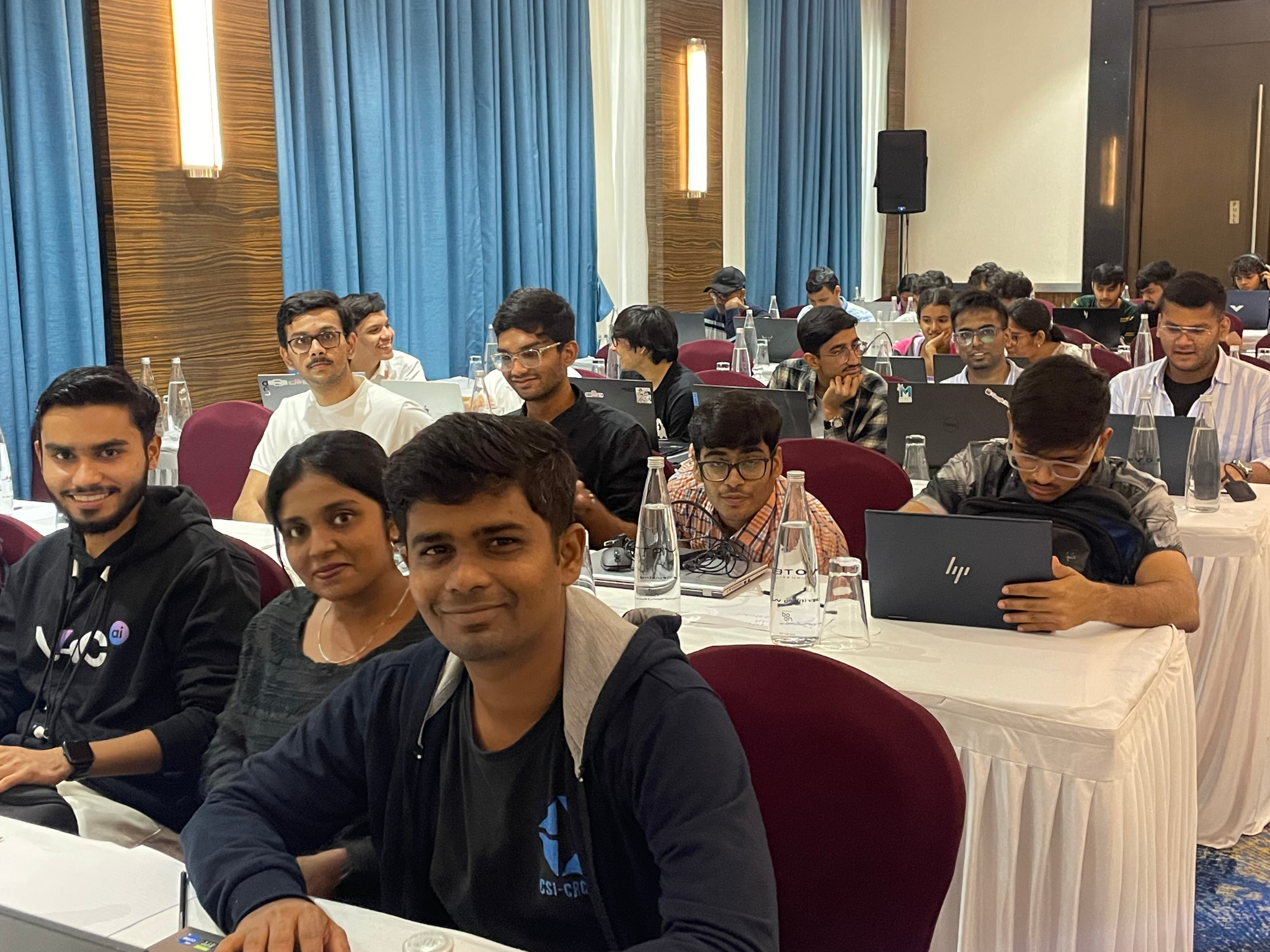
In a hackathon hosted by AI-for-good organisations Electric Sheep and Open Paws, around 150 coders came up with compassionate tools for animal justice.
What do you get when you put 150 young hackers in a room to develop tech-led solutions for animal welfare and climate justice?
That was the basis of the hackathon organised by Electric Sheep and Open Paws on the sidelines of the Vegan India Conference in Mumbai this month.
Called Code 4 Compassion, it was the third such hackathon after events in San Francisco and London earlier this year. The series focuses on building technical infrastructure for animal advocacy, with participants collaborating to create automations, AI prototypes, and no-code tools to support animal protection and food system innovation efforts.
In Mumbai, the event grouped young software engineers, coders, and mission-driven developers from across the country in 25 teams to solve problem statements around cruelty, animal-related policies, and veganism over a 24-hour period.
“From what we’ve seen and done here, it’s clear that India is rapidly becoming the epicentre of AI for impact,” Electric Sheep CEO Ash Singh told Green Queen. “Electric Sheep and Open Paws are excited about the work of these brilliant young developers and what they can do for animal protection and climate change. The change starts here.”
India’s coders create a diverse range of advocacy tools

Code 4 Compassion’s aim was to uncover real-world AI tools for NGOs, civil society organisations, and citizen-led movements – and many of the resulting prototypes garnered international investors.
One team created RescueRadar, an AI-led cruelty report processing system that categorises cruelty incidents, extracts key details, and scans complaints for the most urgent cases that need the attention of rescue organisations and the appropriate authorities.
Another group developed SufferingWatch, which leverages machine learning to monitor regulatory filings and flag potential animal welfare violations in industries like meat and dairy. AnimalParliament, meanwhile, is a natural language processing system that tracks animal-related state and national bills and monitors news.
The coders also created SaferStrays, a digital interface to map stray animals and connect citizens with local rescue centres, while building a census database for welfare programmes.
Plus, the hackathon led to the creation of VeganMe, a culturally adapted chatbot that provides round-the-clock support for people transitioning to plant-based diets, and IndiaForAnimals, a multilingual content generation platform to build animal welfare education.
Developers also built software and websites like FirstHello, a cold outreach automation system that identifies leaders of target organisations and generates personalised advocacy messages for corporate engagement campaigns. Another team built Profilr, a fundraising agent that analyses potential donors’ philanthropic histories to generate compelling outreach pitches.
Organisers in talks to integrate AI tools in real-world applications

The event was co-hosted by Craigslist CF, ProVeg, Kickstarting for Good, Stray Dog Institute, People for Animals and Bharat Accountability Initiative, and is part of a push to integrate India’s AI prowess with social justice movements that remain underfunded and overstrained.
“This is India’s moment to lead,” said Sam Tucker-Davis, executive director of Open Paws. “We’re not just mentoring coders – we’re brokering lifelong collaborations between India’s tech community and movements that need AI the most.”
He added: “The mentorship model we’ve developed allows participants to achieve remarkable results, and the solutions created here will have lasting impact across the movement.”
Open Paws and Electric Sheep are now planning to make several of the new tools open-source, launch an AI-for-impact incubator, and conduct future events in the cities of New Delhi and Bangalore, according to the Deccan Chronicle. They’re also in talks with civic organisations and advocacy groups to integrate some of these solutions into governance and public outreach systems.
There’s already precedent for this: a prototype from the Code 4 Compassion event in San Francisco has been adopted by a British NGO to oppose the construction of new factory farms.
“The innovation and ingenuity that these young coders demonstrated represent a quantum leap in how technology can serve animal and climate advocacy,” said Electric Sheep’s Singh. “India’s combination of tech talent and mission alignment can drive impact as we’ve never before seen. We’ve worked in Silicon Valley and across Europe, and India’s AI talent is right up there in terms of proficiency and creativity.”
The post These Animal Welfare NGOs Put 150 Hackers in A Room. These Are the AI Tools They Built appeared first on Green Queen.
This post was originally published on Green Queen.